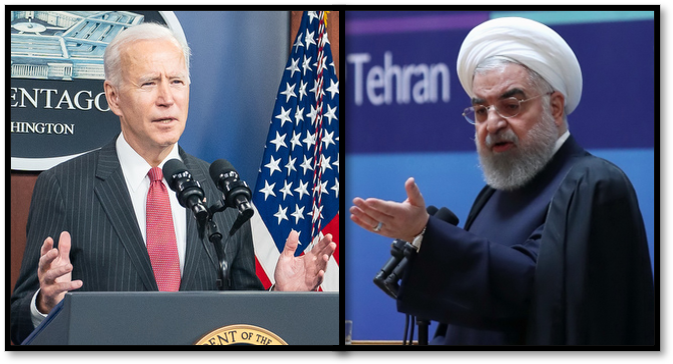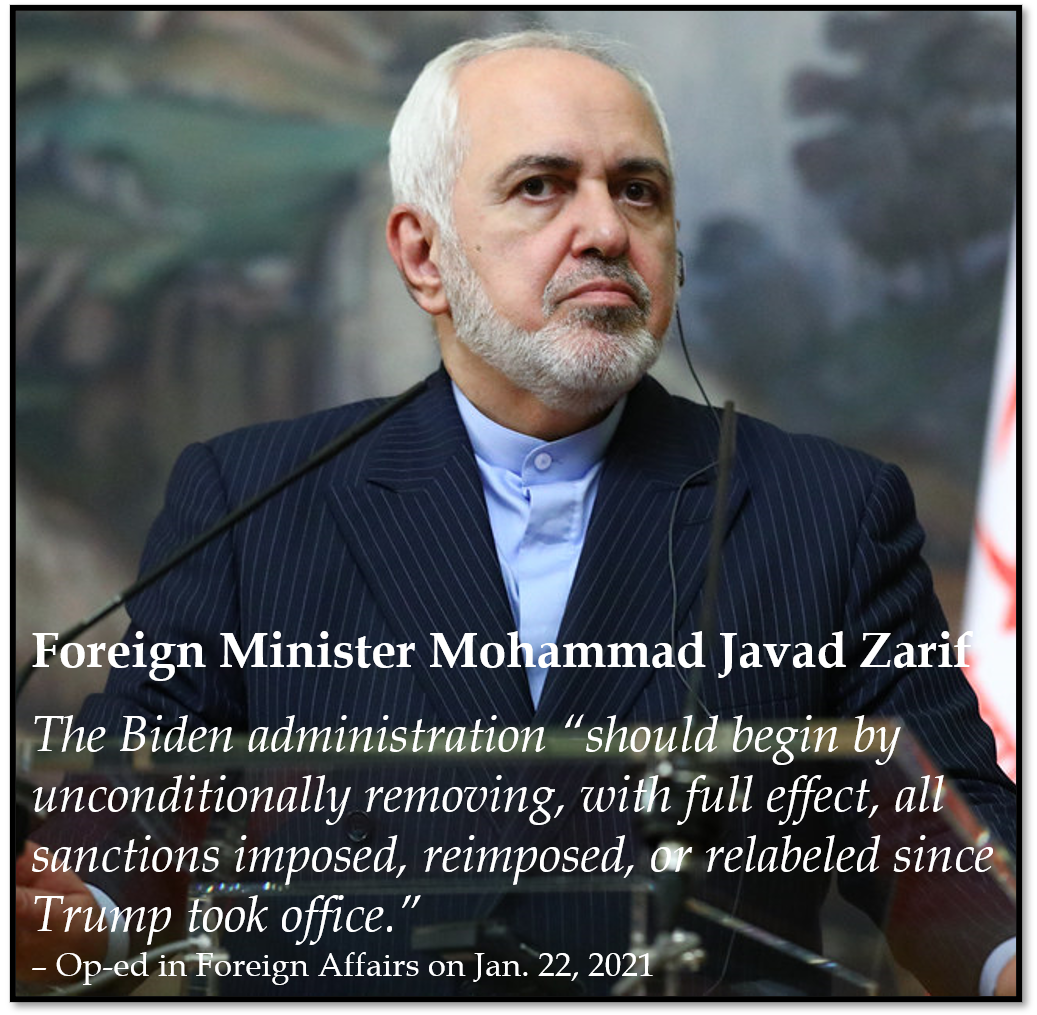
President Joe Biden and President Hassan Rouhani
|
Why Lifting U.S. Sanctions is So ComplexThe most complicated issue in U.S.-Iran diplomacy is the overlapping network of U.S. sanctions that punish the Islamic Republic on multiple counts, from activities related to the nuclear program and support of terrorism to missile proliferation and human rights abuses. The Biden administration has vowed to lift the sanctions related to Iran’s nuclear program – as promised in the 2015 deal – if Tehran, in turn, rolls back recent breaches of the nuclear deal. The complicating factor in current and future diplomacy is that key Iranian institutions and individuals could remain sanctioned for secondary reasons, thus not providing Iran the economic relief it seeks.
What Sanctions Iran Wants LiftedIran has insisted that all economic sanctions imposed or reimposed since 2018 by the Trump administration must be removed before Tehran will fully comply with the 2015 nuclear deal. But relief from some sanctions – notably on oil exports – is more urgent to Iran than other sanctions. Tehran has specifically demanded sanctions relief for its banking and oil sectors. Key entities include the Central Bank of Iran, the Ministry of Petroleum, the National Iranian Oil Company and the National Iranian Tanker Company.
What Iran Has to Reverse on Its Nuclear ProgramTehran would need two to three months to reverse its breaches of the nuclear deal, Ali Akbar Salehi, the head of the Atomic Energy Organization of Iran, said on April 2. But Iran could immediately stop some activities, such as enriching uranium to 20 percent. Under the deal, Iran was only allowed to enrich to 3.67 percent.
New Talks: U.S. StatementsOn April 6, the United States attended indirect talks on returning to the 2015 Iran nuclear deal hosted by the European Union in Vienna. The talks includes the other five world powers – Britain, China, France, Germany and Russia – and Iran. The United States said that it would not speed up negotiations based on upcoming Iranian presidential elections in June. “We will negotiate with whoever is in power in Iran,” U.S. Special Envoy Rob Malley said the morning of the Vienna talks. “And if we could reach an understanding before the elections, fine. And if we can't, we'll continue after that with whoever is in office in Tehran.”
New Talks: Iran StatementsIran also attended indirect talks on its nuclear program hosted by the European Union in Vienna. Iran did not meet directly with the United States but held separate discussions with the five remaining participants, known as the P4+1. Deputy Foreign Minister Abbas Araghchi said that negotiations were on “the right track,” but that it was “too soon to say it has been successful.”
New Talks: World StatementsWorld powers expressed optimism about the Vienna meetings. “There's unity and ambition for a joint diplomatic process,” Enrique Mora, the E.U. coordinator for the talks, tweeted on April 6. Mikhail Ulyanov, the Russian ambassador in Vienna, met with Malley the day after the first round of talks. “We had a businesslike discussion on issues related to restoration of full implementation of the #JCPOA by all sides,” he tweeted on April 7.
Timeline of Diplomacy Under BidenDiplomacy between the Tehran and Washington initially stalled over disagreements about which country should first comply with the 2015 nuclear deal. Iran refused to meet directly with the United States unless it first lifted sanctions imposed by the Trump administration, which withdrew from the accord in May 2018. Iranian Foreign Minister Javad Zarif said that Tehran would wait "as long as it takes for the U.S. to return." After weeks of behind-the-scenes overtures, the European Union announced on April 2 that it would convene indirect talks including the six major world powers and Iran.
|

